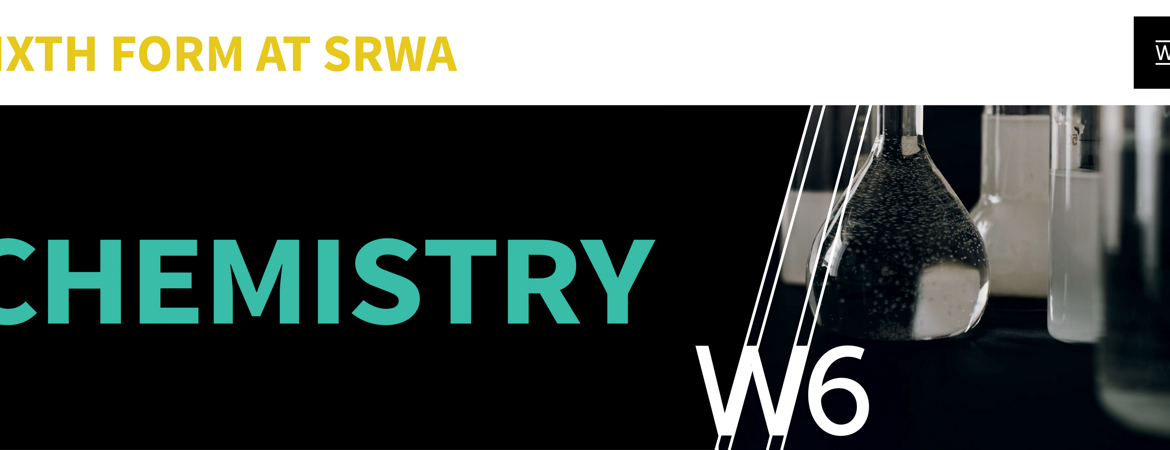- Home
- Sixth Form
- Courses at W6 Sixth Form
- Chemistry
Chemistry
Entry requirements
6 in Combined Science, or
6 in two of the Separate Science GCSEs inc. Chemistry
5 in GCSE Maths
What will I study
Physical Chemistry:
Atomic structure, Bonding, Energetics, Kinetics
Chemical equilibria and Le Chatelier’s principle
Oxidation, reduction and redox equations
Thermodynamics, Rate equations
Equilibrium, Kp, Electrode potentials
Acids and bases
Inorganic Chemistry:
Periodicity, Group 2, the alkaline earth metals
Group 7(17), the halogens
Properties of period 3 and oxides
Transition metals
Reactions of ions in aqueous solution
Organic Chemistry:
Introduction to organic chemistry
Alkanes
Halogenoalkanes
Alkenes
Alcohols
Organic analysis
Optical isomerism
Aldehydes and ketones
Carboxylic acids and derivatives
Aromatic Chemistry
Amines
Polymers
Amino acids
Proteins and DNA
Organic synthesis
NMR
Chromatography
How will I be assessed?
Papers 1 and 2: 35% each of the A-level. Physical and Organic Chemistry, practical skills and endorsement. Each two hours, 105 marks of short and long answer questions.
Paper 3: 30% of the A-level. Synoptic paper: Range of content and practical skills, two hours.
You will complete 12 required practical tasks during the course, which will be assessed as part of your final practical endorsement. This will be pass or fail, which is reported separately to the Exam Board.
Is this subject for me?
Chemistry opens your eyes to the inner working of the world around you. As it is essential to the development of new products and new materials there is always a very high demand for skilled chemists, opening up great opportunities for a wide range of careers.
Getting a chemistry A-level is hard work, which is why it is so well respected by employers and universities.
Where can this lead me?
Chemistry can lead to a range of wide degree pathways that include both sciences and non-science courses, from chemical engineering to law. Nearly all courses in chemistry require another science or maths A-level so bear this in mind when choosing your options.
Chemistry can lead to a wide range of jobs including:
Lecturer
Chemical Researcher
Nurse
Biomedical Scientist
Project Manager
Research Fellow
Analytical Chemist
Environmental Chemist
Pharmacist
Doctor
Lawyer
Solicitor
Finance
Management Consultancy
Veterinary Surgeon
Patent Attorney
What else is there?
When studying Chemistry you will have the chance to visit the labs of the University of Sussex Chemistry department. You will also be able to participate in an undergraduate level practical investigation, which will include making a scientific poster to present your research, method and results. Our strong partnership with world-leading engineering firm Ricardo means that you will gain access to their fuel testing labs to apply your advanced chemistry knowledge and skills. You will also have the opportunity to engage in a chemistry-based IRIS research project and present your findings to the wider scientific community.



